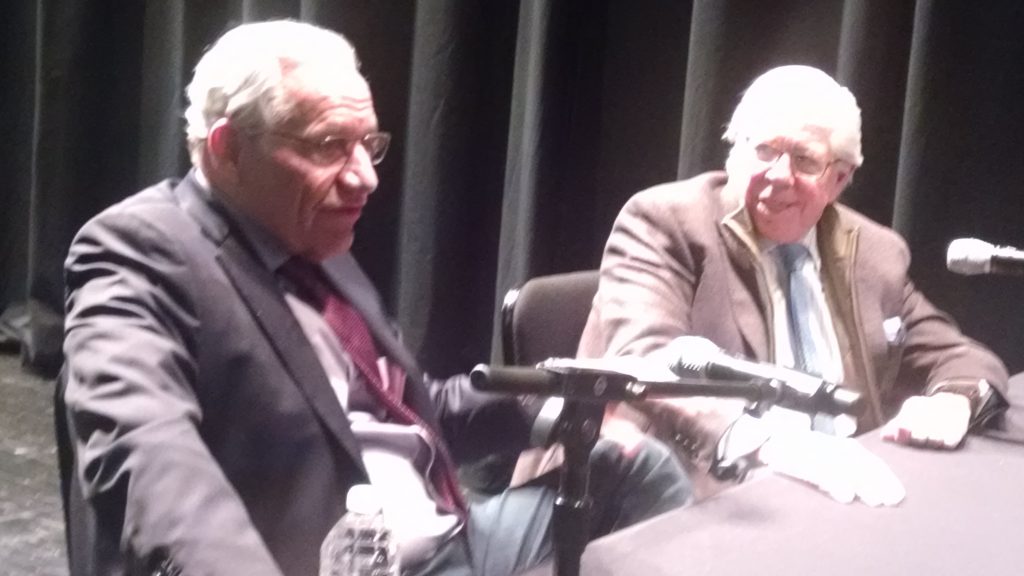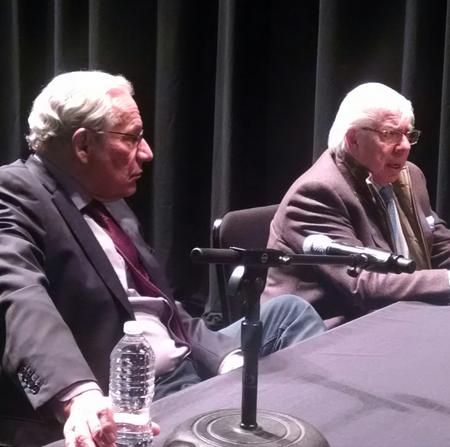All The Donald’s Men: Watergate Reporters say Trump Era Demands Aggressive Journalism
Bob Woodward and Carl Bernstein, who broke the Watergate scandal, say questions about Trump echo those raised during the Nixon era. They talked about reporting in the age of Trump at Macomb Community College, in the region that handed Trump the White House.

Legendary reporters Bob Woodward and Carl Bernstein say the presidency of Donald Trump has distinct echoes of the Watergate scandal that drove President Nixon from office.
The two journalists broke the initial Watergate stories in the 1970’s despite significant opposition from the Nixon White House, an effort chronicled in the book and movie “All the President’s Men.”

The pair discussed the current state of journalism in the Trump era during an event at Macomb Community College in Clinton Township.
Woodward, an associate editor at the Washington Post and the author of a series of books investigating recent presidential administrations, said Trump’s style sets him apart from other occupants of the Oval Office.
Woodward said his recent reporting for the book “Fear: Trump in the White House” revealed a president who seems to make policy decisions on a whim with little regard for the truth.
“The governing. Just take North Korea. Started out by saying ‘Oh my nuclear button is bigger than yours.’ And he thinks he can get Kim Jung-un to get rid of his nuclear weapons. The intelligence people…came out openly and said, ‘No.’ So the more you look at the substance, the more you have to worry,” Woodward said.
Bernstein, now a frequent CNN contributor, said the kind of investigative, multi-sourced reporting that exposed the Watergate scandal is needed now more than ever to examine President Trump.
It’s especially necessary, Bernstein has said on CNN, to determine whether Trump, wittingly or unwittingly, helped Russia destabilize U.S. elections.
Bernstein said at the Macomb event such reporting often requires the use of anonymous sources to get vital information to the public, even at the risk of leaving stories open to being criticized as “fake” news.
“There’s no other way to do it,” he said. “And it’s really an effective way of getting to the best obtainable version of the truth. And it’s not just about reporting on the presidency or malfeasance around the President. I think it applies to almost all really good reporting in which there’s a lot at stake for the participants.”
Trump, like Nixon before him, has often painted the media as an enemy when reports put their presidencies in a negative light.
